The Rickshaw App’s
The future of rickshaws is also geared towards sustainability, focusing on environmentally-friendly technologies such as electric and hybrid vehicles and smart city technologies. This shift towards green technology will result in reduced emissions, improved energy efficiency, and a greener future for rickshaws.
To conclude, the rickshaw industry is set to be transformed by technological advancements, providing passengers with a faster, safer, and more sustainable mode of transportation. The integration of drones and self-driving technology promises a bright future for rickshaws.
Our professional services cater to diverse needs, and we strive to ensure that every service we provide is delivered with a smile and to your utmost satisfaction. An environment-friendly non-profit foundation has been established to support rickshaw drivers, an integral mode of transportation in many parts of the world. The foundation’s objective is to enhance the lives of these drivers by providing access to health insurance, education, language courses, and financial assistance, specifically empowering women to become self-reliant. We also extend microcredit opportunities to aid drivers in expanding their businesses and increasing their earning potential.
Our organization is dedicated to advocating for environmentally-friendly rickshaws that run on electricity, resulting in reduced emissions. We also provide education and language skills to drivers, helping them understand customer needs and improve their business acumen. We aim to support drivers in need, providing financial and legal assistance whenever possible. Through our efforts to improve the lives of independent rickshaw drivers and promote sustainable transportation, we are working towards a brighter future for all.
The Need for an Environment-Friendly Rickshaw Foundation
In many parts of the world, rickshaws are a standard mode of transportation for people who need to get around quickly, efficiently, and affordably. However, despite their popularity, many rickshaw drivers face numerous challenges in their daily lives, such as lack of health insurance, limited access to education and language courses, and financial difficulties. To address these issues, a non-profit, environment-friendly rickshaw foundation has been established to support independent rickshaw drivers worldwide.
The primary objective of this foundation is to improve the lives of rickshaw drivers by providing them access to health insurance, education, language courses, and financial support. The foundation is primarily focused on supporting women to become independent, which is crucial in helping to break down gender-based barriers that limit their opportunities and opportunities.
In addition to providing support for drivers, the foundation also includes microcredit opportunities to help them start and grow their businesses. These loans help drivers invest in their rickshaws, purchase new vehicles, and increase their earning potential.
The foundation also promotes using environment-friendly rickshaws, which are becoming increasingly popular in many cities worldwide. These rickshaws are powered by electricity, reducing harmful emissions released into the atmosphere and helping to create a cleaner, more sustainable future for all.
Furthermore, the foundation is committed to helping rickshaw drivers access education and language courses, which are crucial in understanding their customers’ needs and improving their overall business skills. By providing them with the tools and resources they need to succeed, the foundation is helping to create a brighter future for independent rickshaw drivers worldwide.
The foundation is committed to supporting rickshaw drivers in need, whether they face financial challenges or have been injured while on the job. They offer financial assistance, legal support, and other resources to help these drivers recover.
Overall, the non-profit organization is dedicated to improving the lives of independent rickshaw drivers worldwide. They aim to achieve this by providing health insurance, education, language courses, and financial assistance. Through their efforts, they are creating a brighter future for rickshaw drivers and their families. Additionally, the foundation’s commitment to promoting environmentally-friendly rickshaws is vital in creating a more sustainable future for everyone.
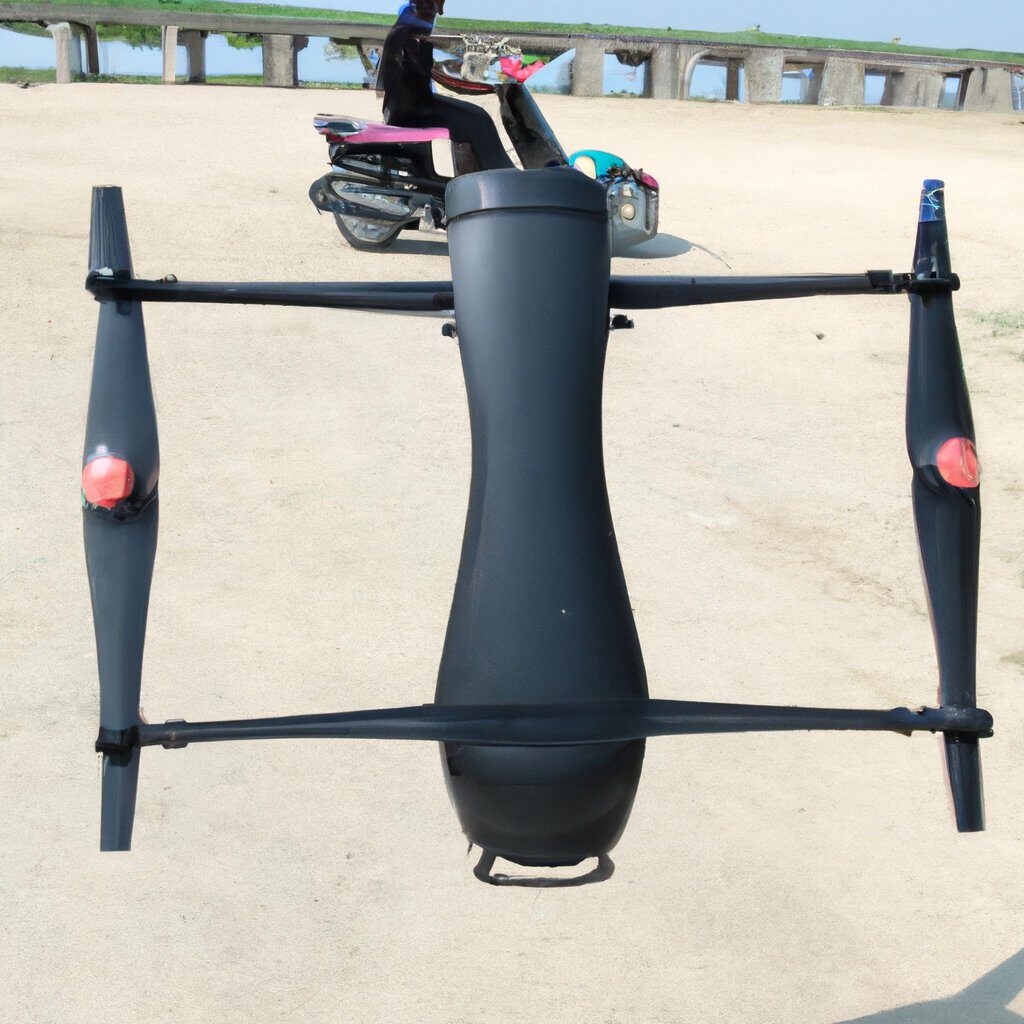
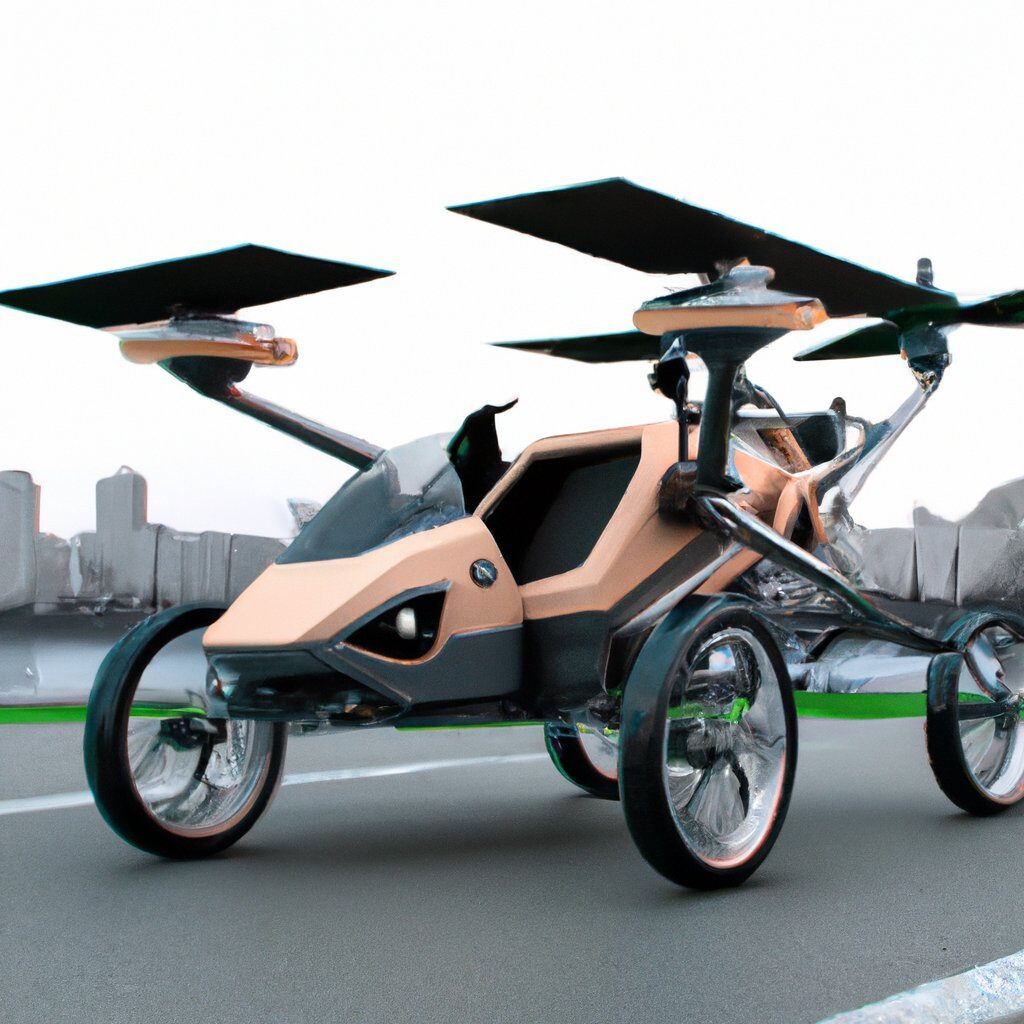
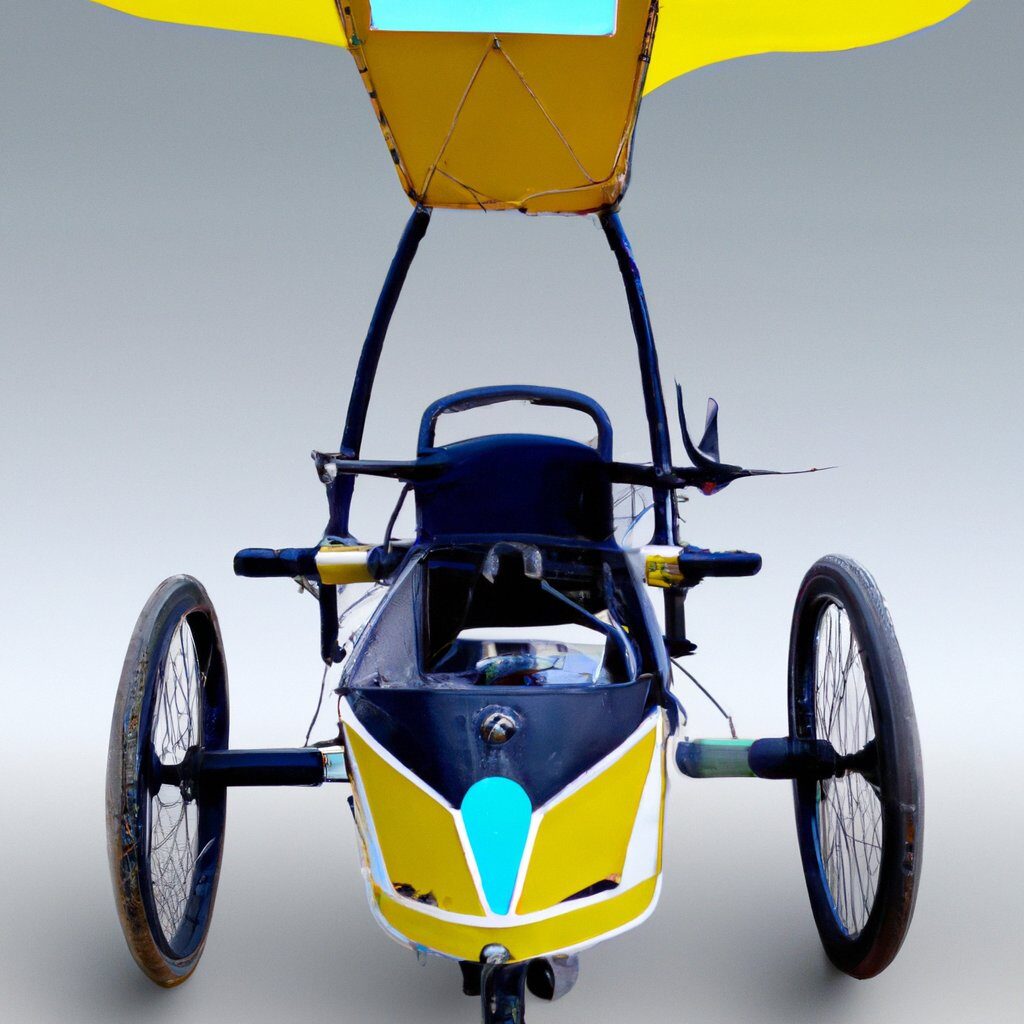
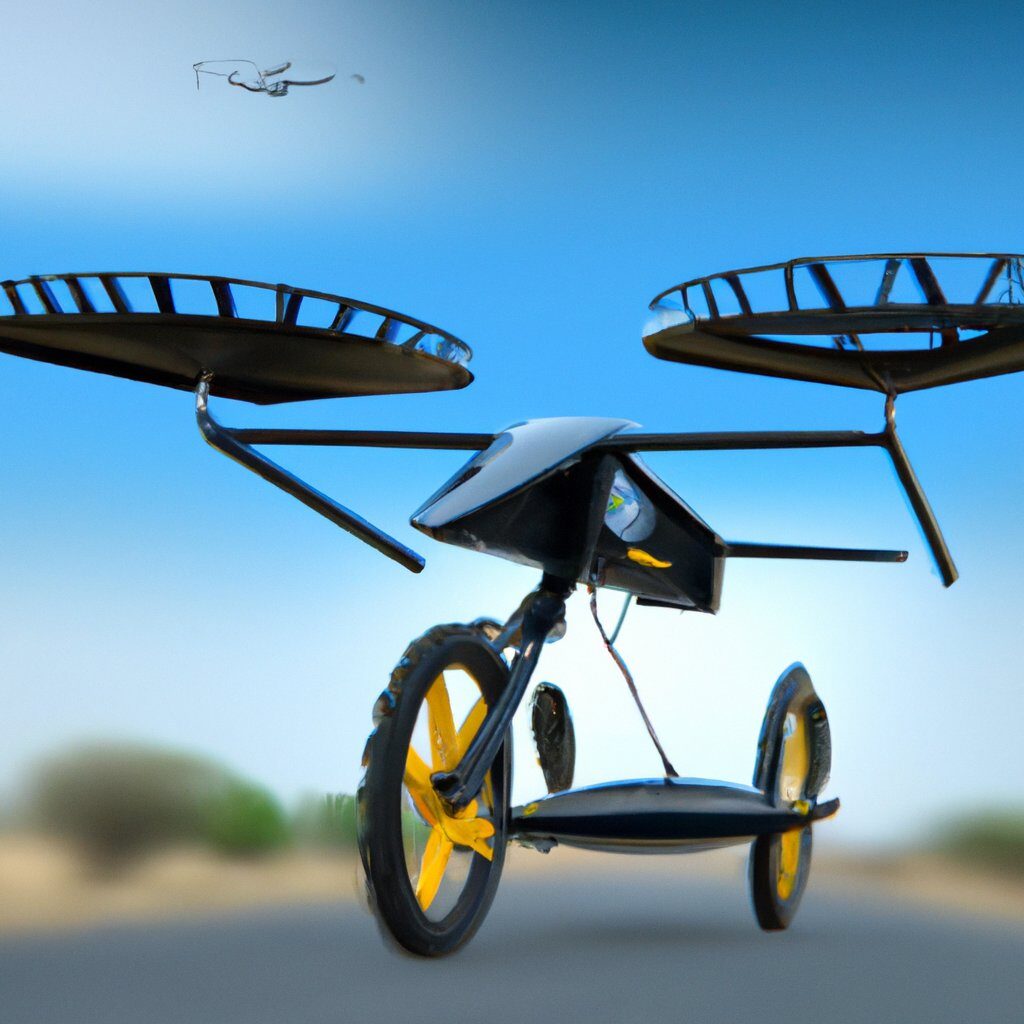
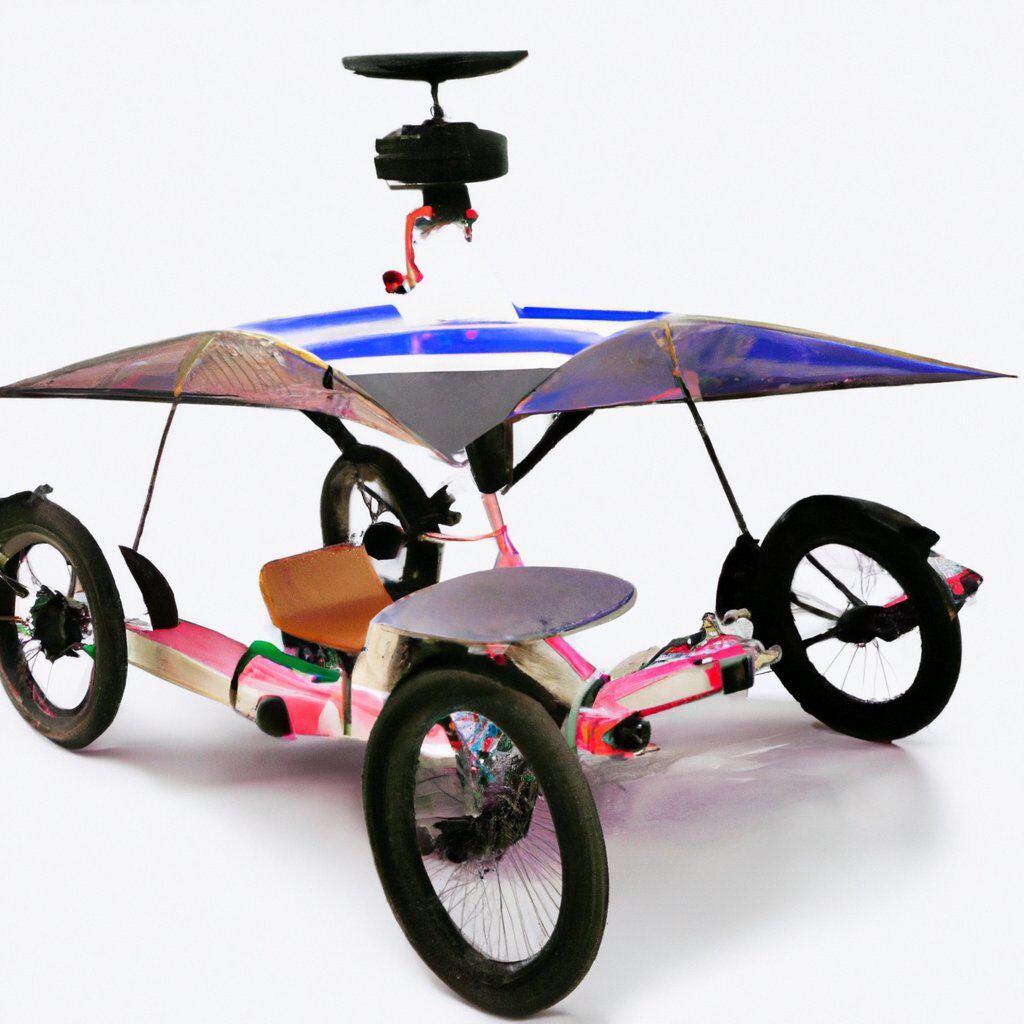

Besides drones and self-driving technology, several other technologies are being integrated into rickshaws to improve their efficiency, sustainability, and overall experience.
Some of these technologies include:
-
Electric Powertrains: Many rickshaws are now equipped with electric motors instead of conventional internal combustion engines. This shift helps reduce emissions and noise pollution, making them more environmentally friendly.
-
Solar Panels: Some rickshaws are incorporating solar panels on their roofs to harness solar energy and charge their batteries. This feature helps extend the range of electric rickshaws and reduces their dependence on external charging infrastructure.
-
Lightweight Materials: Using lightweight materials, such as carbon fiber or aluminum alloys, helps reduce the weight of rickshaws, making them more energy-efficient and easier to maneuver.
-
IoT (Internet of Things) Connectivity: The integration of IoT technology allows rickshaw drivers to access real-time data on traffic conditions, optimal routes, and weather updates. This connectivity can enhance safety, navigation, and efficiency.
-
Mobile Payment Systems: To facilitate cashless transactions and enhance convenience, some rickshaws have mobile payment systems that allow passengers to pay using digital wallets or credit/debit cards.
Regarding the non-profit foundation providing financial and legal assistance to rickshaw drivers, their ability to do so would depend on the specific initiatives and resources available to them. Some potential ways a non-profit foundation could assist include:
-
Financial Aid: The foundation may support rickshaw drivers facing economic hardship. This could include grants, loans, or microfinance programs to help them with vehicle maintenance, repair costs, or other financial challenges.
-
Legal Support: The foundation may provide legal assistance to rickshaw drivers, especially in cases where they face legal issues such as licensing problems, unfair treatment, or harassment. This could involve offering legal advice, connecting them with pro bono lawyers, or advocating for their rights and interests.
-
Training and Skill Development: The foundation may organize training programs to enhance the skills and knowledge of rickshaw drivers, enabling them to improve their earning potential and customer service or transition to alternative livelihoods if desired.
As for cities or regions that have implemented environmentally friendly rickshaws, several locations have embraced these vehicles to promote sustainable transportation. Some examples include:
-
Dhaka, Bangladesh: Electric rickshaws, known as “Easybikes,” have gained popularity in Dhaka as an eco-friendly alternative to traditional rickshaws. These battery-powered vehicles contribute to reducing air pollution and noise levels.
-
Kyoto, Japan: The city has introduced electric rickshaws called “Jinrikisha” as a means of sustainable tourist transport. These rickshaws, pulled by human-powered drivers, have been designed to blend traditional Japanese culture with modern eco-friendly technology.
-
London, United Kingdom: The city has implemented pedal-powered rickshaws, known as “rickshaw taxis” or “pedicabs.” These vehicles offer an environmentally friendly mode of transportation for short distances, particularly in tourist areas.
-
Copenhagen, Denmark: The city has embraced electric cargo rickshaws, called “cyclo-cabs” or “cargobikes,” to transport goods. These electric-assisted vehicles are eco-friendly alternatives to traditional delivery vans, reducing congestion and emissions.
These examples highlight a few regions where environment-friendly rickshaws have been implemented. Still, adopting such vehicles can vary across different cities and countries depending on their specific transportation needs and priorities.
The Rickshaw App’s Future: Rickshaw Air and Tuktukair
The rickshaw industry is on the brink of a technological revolution with the integration of cutting-edge technologies like drones and self-driving technology. This integration promises to bring about a faster, more efficient, and more convenient mode of transportation for passengers, creating new opportunities for rickshaw drivers.
Using drones in rickshaws can avoid heavy traffic, and passengers can reach their destinations faster. Moreover, goods can be transported to remote locations with ease. Self-driving technology will ensure excellent safety and reliability, allowing drivers to focus on other tasks.
Rickshaw air and Tuktuk Air E-drone Technology
Have you heard about the exciting developments happening in the rickshaw industry? Groundbreaking technologies like drones and self-driving technology are being integrated, which could revolutionize the way we travel. This integration promises to provide passengers with a faster, more efficient, and more convenient mode of transportation, while also creating new opportunities for rickshaw drivers.
By using drones in rickshaws, heavy traffic can be avoided, and passengers can reach their destinations more quickly. Additionally, goods can be transported to remote locations with ease. The implementation of self-driving technology will ensure excellent safety and reliability, freeing up drivers to focus on other tasks. It’s an exciting time for the rickshaw industry, with innovations like Rickshaw Air and Tuktukair on the horizon.
